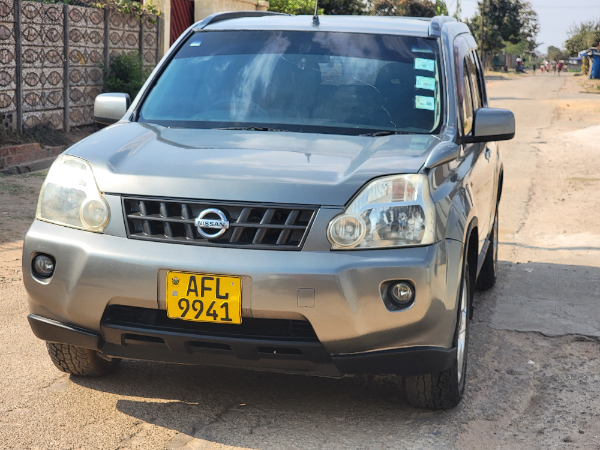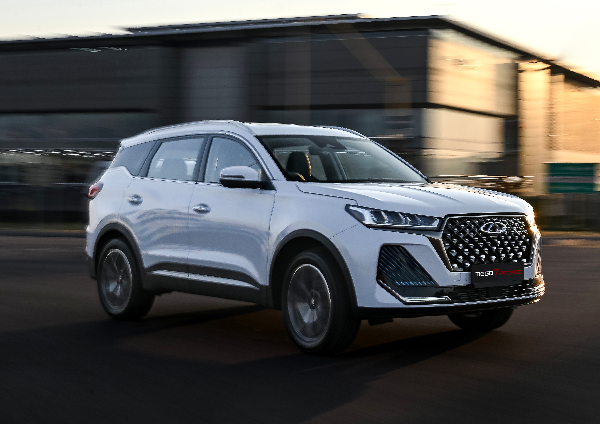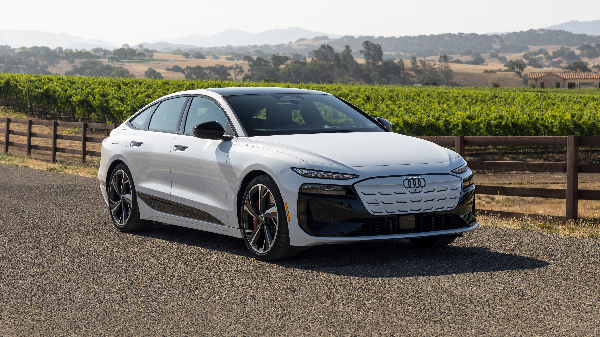Advantages and disadvantages of leasing a vehicle
Think about it as ownership without the drawbacks – or is it? Let us explain.
Car lease agreement
Car leasing is a viable option to choose if you want to get your hands on a brand new car. This is not familiar to us this part of the world. However, it is not a new phenomenon in the Philippines as there are numerous car brands out there that will offer you this service. Leasing does come with a few advantages as it can make life easier for those looking to get behind the wheel of a new car as it is not as costly to lease a car compared to outright owning it.
For those of you who are looking for an alternative to car ownership, let us first go over the advantages and disadvantages of leasing a car for a long period. There are a few different types of entities that offer you leasing opportunities. Manufacturers like Toyota and Nissan will likely offer you a range of units to choose from to lease for a long period. Other companies also specialize in short-term rentals and usually last a few days to a month. You can also lease from private owners, which has its own set of nuances.
Advantages
When it comes to leasing a vehicle, it comes with a few advantages. These advantages help give you a little bit more financial flexibility and can even let you get a new car every few years once your original lease contract expires.
Leasing is less expensive every month
As a start, compared to a loan or other financing options, leasing tends to be less expensive. It essentially is borrowing the car for a price. As the lessee, you are supposed to pay a recurring fee as per your contract’s stipulation. You can even customize the terms of the lease with a bank to make it even more affordable on your end.
A new car
If you can opt for a good lease deal, the car that you will be given will be a brand new – or close to brand new—unit. Once your contract is up, you can renew your lease with a new unit or extend your contract if the lessor allows it.
You can buy the leased unit
After your leasing contract is done with the vehicle you have the option of buying the car right after it. It will be sold to you at a substantially lowered price. To transfer the ownership to you, the manufacturer can either take back the unit you have grown accustomed to, or you can renew your contract and return the car for something new. This is great if you want to change cars every few years or buy the one you have gotten accustomed to.
The leasing period can be short-term
You do not need to commit to a car for the rest of your life. Eventually, you will have to return the unit to its rightful owner. If you are not that sentimental, then it is on to the next one. Also if you just need the car for a specific task for a short period, after the term is up, you would not have to worry yourself about the machine anymore.
You can lease or buy another car after you have paid your dues, and your contract is up, a new car may be available for you to lease depending on the company you transact with. You do not have to go through the hassle of selling it when the lease contract is over, just return the car, and have the owner sort out what to do with a unit they were not able to use. Either that or, the company that you borrowed from is tasked to find a buyer or a new lessee.
Disadvantages
While the advantages of leasing a car are very tempting, you still have to consider the other side of the coin. There are a couple of disadvantages you will have to ponder if you want to lease a vehicle. These may limit your choices and your ownership experience, but it is part of the price to pay for those who want to lease a car.
It is not your car
You have to remember that when leasing a vehicle, it is not exactly under your ownership. There is a certain certainty when it comes to owning your car. Whenever people ask you how you arrived, you cannot necessarily say it is yours, as it belongs to the company leasing the vehicle to you, but that it is yours temporarily. That sounds very clumsy. You can take real pride in owning a car when you buy it outright.
You are limited to the dealership or accredited service centers
It is important to remember that a vehicle under a lease is still not yours. As such the owner of the lease can dictate to you where you should have it serviced. While this can be a hassle for some, especially if the service center is far from your home, it can be a blessing for others who happen to live close to an accredited dealership. That being said, it is best to consult with the leasing company so that you can make your leasing agreement beneficial to you.
Maintenance
Maintenance is on you
For units that are loaned out for a long period, the maintenance schedule may come into play. At this point, it depends on what the contract states. You could be responsible for paying for the service, or your fee already accounts for maintenance and parts. Better check the fine print.
Repairs are paid for by you
If you happen to get into a minor or major accident, things will pan out the same way. The unit that you will be leased will most likely be insured, but there could be penalties that accompany this. Also, if the owner would prefer you have the unit repaired at the dealership, the repair cost could be substantial. However, make sure that you read the fine print as car insurance will be required for the leasing term. In this case, the insurance company will be the ones to pay for any damages. This is why it is best to opt for car insurance when leasing a vehicle as it can save you the hassle of costly repairs.
There might be a milage cap depending on your contract, the owner of the car would want his asset to keep its odometer from advancing too much. The owner might give you a distance cap, which is no fun especially if you like going on road trips.
Read the fine print
We cannot stress this enough. Make sure that you read the fine print to make sure that all legalities are sorted out. While it could be easy to get into a contract, provided you pass the background checks, getting out of a contract is never cut and dry. It can be a lengthy process that may even cost you an extra fee to cancel the lease.
Do not go too far. Depending on your contract, the owner of the car would want his asset to keep its odometer from advancing too much. The owner might give you a distance cap, which is no fun especially if you like going on road trips.
No modification. Since it is not your car, you cannot do as you please, so that means you should keep the unit as pristine and spotless as possible. You cannot install an aftermarket exhaust, or new body kits, or new wheels. The owner has not given you permission to.
Extra tips
As a few reminders before you consider leasing a vehicle, here are some quick tips to help you make that decision.
Do your research
Just like how you would normally buy a car, it is best to always do your research beforehand. Find the best deals that will best suit your vehicle of choice and choose which ones will be less financially burdening to you.
Know that the car is not yours
Remember that if you lease a vehicle it is not fully yours. However, know that this can also play to your advantage since you are not burdened with the hassle of what happens to the unit after you use it.
There is always the next contract
If you are already bored of the leased vehicle and want to transition into something newer and better, know that there is another leasing contract waiting for you. This allows you to upgrade regularly.
Be careful with the car
Even if the car is not yours by name still treat it like it is. Remember that if you damage the car the repair cost may be transferred to you which can be a costly experience.
In closing
If it is a long term lease, it is essentially a financing plan with lower rates and now ownership, unless you choose to buy the unit towards the end of the contract period.
When you lease, you still do not own the unit outright. That can be a sore spot for individuals that enjoy the thought of owning a car. At the end of the day, this is another way of looking at the product cycle when it comes to cars. At the start of the cycle, a unit rolls off the showroom floor for a price, then depreciation begins to set in after it is used. The car is sold off at a depreciated price to the next owner. A leased unit rolls off the lot for a price, is used by the lessee, and then returned to the lessor, or bought by the lessee. It is essentially the same, with extra complexity and paperwork woven in, though the latter can appear more affordable it all depends on how you utilize the lea
Car lease agreement
Car leasing is a viable option to choose if you want to get your hands on a brand new car. This is not familiar to us this part of the world. However, it is not a new phenomenon in the Philippines as there are numerous car brands out there that will offer you this service. Leasing does come with a few advantages as it can make life easier for those looking to get behind the wheel of a new car as it is not as costly to lease a car compared to outright owning it.
For those of you who are looking for an alternative to car ownership, let us first go over the advantages and disadvantages of leasing a car for a long period. There are a few different types of entities that offer you leasing opportunities. Manufacturers like Toyota and Nissan will likely offer you a range of units to choose from to lease for a long period. Other companies also specialize in short-term rentals and usually last a few days to a month. You can also lease from private owners, which has its own set of nuances.
Advantages
When it comes to leasing a vehicle, it comes with a few advantages. These advantages help give you a little bit more financial flexibility and can even let you get a new car every few years once your original lease contract expires.
Leasing is less expensive every month
As a start, compared to a loan or other financing options, leasing tends to be less expensive. It essentially is borrowing the car for a price. As the lessee, you are supposed to pay a recurring fee as per your contract’s stipulation. You can even customize the terms of the lease with a bank to make it even more affordable on your end.
A new car
If you can opt for a good lease deal, the car that you will be given will be a brand new – or close to brand new—unit. Once your contract is up, you can renew your lease with a new unit or extend your contract if the lessor allows it.
You can buy the leased unit
After your leasing contract is done with the vehicle you have the option of buying the car right after it. It will be sold to you at a substantially lowered price. To transfer the ownership to you, the manufacturer can either take back the unit you have grown accustomed to, or you can renew your contract and return the car for something new. This is great if you want to change cars every few years or buy the one you have gotten accustomed to.
The leasing period can be short-term
You do not need to commit to a car for the rest of your life. Eventually, you will have to return the unit to its rightful owner. If you are not that sentimental, then it is on to the next one. Also if you just need the car for a specific task for a short period, after the term is up, you would not have to worry yourself about the machine anymore.
You can lease or buy another car after you have paid your dues, and your contract is up, a new car may be available for you to lease depending on the company you transact with. You do not have to go through the hassle of selling it when the lease contract is over, just return the car, and have the owner sort out what to do with a unit they were not able to use. Either that or, the company that you borrowed from is tasked to find a buyer or a new lessee.
Disadvantages
While the advantages of leasing a car are very tempting, you still have to consider the other side of the coin. There are a couple of disadvantages you will have to ponder if you want to lease a vehicle. These may limit your choices and your ownership experience, but it is part of the price to pay for those who want to lease a car.
It is not your car
You have to remember that when leasing a vehicle, it is not exactly under your ownership. There is a certain certainty when it comes to owning your car. Whenever people ask you how you arrived, you cannot necessarily say it is yours, as it belongs to the company leasing the vehicle to you, but that it is yours temporarily. That sounds very clumsy. You can take real pride in owning a car when you buy it outright.
You are limited to the dealership or accredited service centers
It is important to remember that a vehicle under a lease is still not yours. As such the owner of the lease can dictate to you where you should have it serviced. While this can be a hassle for some, especially if the service center is far from your home, it can be a blessing for others who happen to live close to an accredited dealership. That being said, it is best to consult with the leasing company so that you can make your leasing agreement beneficial to you.
Maintenance
Maintenance is on you
For units that are loaned out for a long period, the maintenance schedule may come into play. At this point, it depends on what the contract states. You could be responsible for paying for the service, or your fee already accounts for maintenance and parts. Better check the fine print.
Repairs are paid for by you
If you happen to get into a minor or major accident, things will pan out the same way. The unit that you will be leased will most likely be insured, but there could be penalties that accompany this. Also, if the owner would prefer you have the unit repaired at the dealership, the repair cost could be substantial. However, make sure that you read the fine print as car insurance will be required for the leasing term. In this case, the insurance company will be the ones to pay for any damages. This is why it is best to opt for car insurance when leasing a vehicle as it can save you the hassle of costly repairs.
There might be a milage cap depending on your contract, the owner of the car would want his asset to keep its odometer from advancing too much. The owner might give you a distance cap, which is no fun especially if you like going on road trips.
Read the fine print
We cannot stress this enough. Make sure that you read the fine print to make sure that all legalities are sorted out. While it could be easy to get into a contract, provided you pass the background checks, getting out of a contract is never cut and dry. It can be a lengthy process that may even cost you an extra fee to cancel the lease.
Do not go too far. Depending on your contract, the owner of the car would want his asset to keep its odometer from advancing too much. The owner might give you a distance cap, which is no fun especially if you like going on road trips.
No modification. Since it is not your car, you cannot do as you please, so that means you should keep the unit as pristine and spotless as possible. You cannot install an aftermarket exhaust, or new body kits, or new wheels. The owner has not given you permission to.
Extra tips
As a few reminders before you consider leasing a vehicle, here are some quick tips to help you make that decision.
Do your research
Just like how you would normally buy a car, it is best to always do your research beforehand. Find the best deals that will best suit your vehicle of choice and choose which ones will be less financially burdening to you.
Know that the car is not yours
Remember that if you lease a vehicle it is not fully yours. However, know that this can also play to your advantage since you are not burdened with the hassle of what happens to the unit after you use it.
There is always the next contract
If you are already bored of the leased vehicle and want to transition into something newer and better, know that there is another leasing contract waiting for you. This allows you to upgrade regularly.
Be careful with the car
Even if the car is not yours by name still treat it like it is. Remember that if you damage the car the repair cost may be transferred to you which can be a costly experience.
In closing
If it is a long term lease, it is essentially a financing plan with lower rates and now ownership, unless you choose to buy the unit towards the end of the contract period.
When you lease, you still do not own the unit outright. That can be a sore spot for individuals that enjoy the thought of owning a car. At the end of the day, this is another way of looking at the product cycle when it comes to cars. At the start of the cycle, a unit rolls off the showroom floor for a price, then depreciation begins to set in after it is used. The car is sold off at a depreciated price to the next owner. A leased unit rolls off the lot for a price, is used by the lessee, and then returned to the lessor, or bought by the lessee. It is essentially the same, with extra complexity and paperwork woven in, though the latter can appear more affordable it all depends on how you utilize the lea









